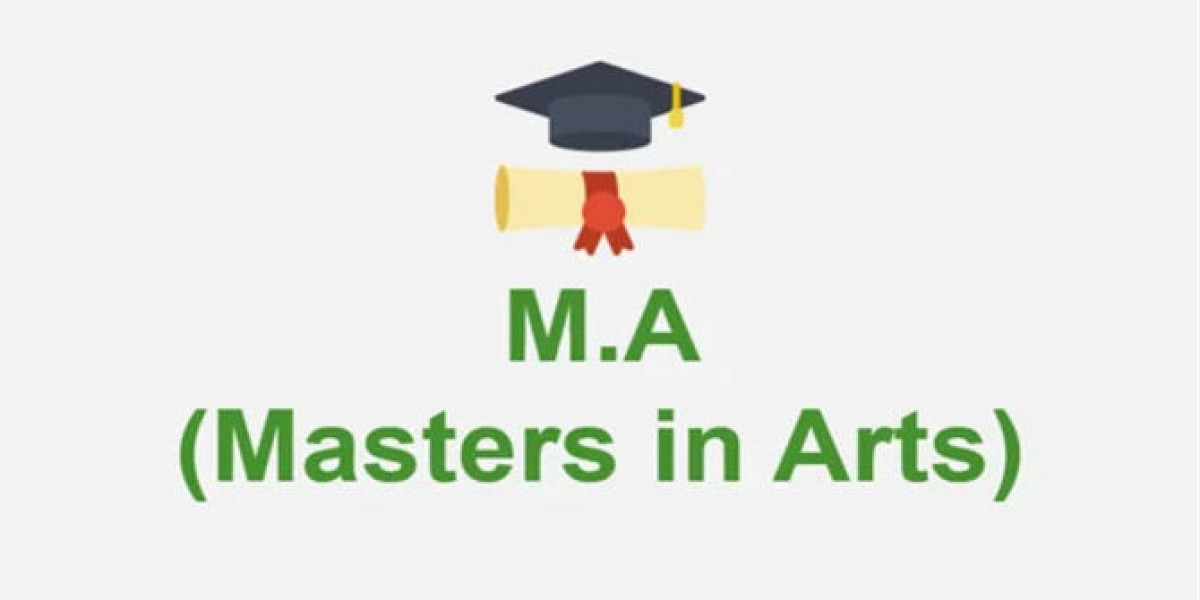In the realm of higher education, the abbreviation "MA" is a familiar term, yet its full meaning often prompts curiosity. MA stands for "Master of Arts," a postgraduate degree that bridges academic inquiry with specialized expertise. This article aims to simplify the concept of the MA full form, exploring its structure, benefits, and the pathways it offers for achieving academic and professional excellence.
Understanding the MA Degree
An MA, or Master of Arts, is an advanced degree awarded to students who complete postgraduate studies in fields like humanities, social sciences, and fine arts. It is typically pursued after earning a bachelor’s degree and generally takes one to two years of full-time study to complete.
Unlike degrees focused on technical skills, the MA emphasizes critical thinking, theoretical frameworks, and analytical insights. It encourages students to delve deeply into their chosen disciplines while fostering intellectual growth.
Historical Background of the MA Degree
The term “Master of Arts” originates from the Latin phrase Magister Artium, which translates to "Master of the Arts." Historically, the arts referred to the liberal arts, a foundational curriculum in medieval universities. These included grammar, rhetoric, and logic—subjects considered essential for a well-rounded education. Over centuries, the scope of the MA degree expanded to encompass diverse academic disciplines.
Key Components of an MA Program
Coursework
An MA program typically includes a mix of core and elective courses:
Core Courses: These provide a foundational understanding of the field and its key theories.
Electives: These allow students to specialize in niche areas aligned with their interests.
Research and Thesis
Many MA programs require students to complete a thesis or research project. This involves:
Selecting a relevant research topic.
Conducting a literature review.
Applying theoretical models to analyze findings.
The thesis not only showcases a student’s expertise but also contributes to the academic community.
Practical Experience
Some MA programs include internships or practical training, especially in applied fields such as journalism, public administration, or social work. These experiences bridge the gap between theoretical knowledge and real-world application.
Why Pursue an MA?
Academic Advancement
For those aspiring to further their studies, an MA serves as a crucial step toward a PhD or other advanced research opportunities. It provides the necessary foundation for scholarly work and teaching careers.
Professional Growth
An MA enhances employability by qualifying graduates for specialized roles and leadership positions. For instance:
Education: An MA in Education can lead to roles in school administration or curriculum development.
International Relations: An MA in Political Science or International Studies prepares graduates for roles in diplomacy or global organizations.
Personal Development
Beyond professional and academic benefits, pursuing an MA fosters personal growth. Students gain critical thinking skills, refine their communication abilities, and cultivate a deeper understanding of their chosen fields.
Fields of Study in an MA Program
The MA degree encompasses a wide range of disciplines. Here are some popular fields of study:
Humanities
Literature: Exploring classical and modern works, literary criticism, and cultural studies.
History: Investigating historical events, their causes, and societal impacts.
Philosophy: Examining ethical dilemmas, metaphysics, and epistemology.
Social Sciences
Sociology: Analyzing societal structures, relationships, and behaviors.
Political Science: Studying governance, political theories, and international relations.
Economics: Delving into economic theories and their applications in policy-making and markets.
Fine Arts
Some MA programs focus on creative disciplines such as:
Music: Merging performance skills with the study of music theory and history.
Visual Arts: Exploring art history, criticism, and advanced artistic techniques.
Global Variations in MA Programs
United States
In the U.S., MA programs are typically research-oriented but also include interdisciplinary options. Students often engage in a blend of coursework, independent research, and practical applications.
United Kingdom
MA programs in the UK are usually one-year intensive courses. They emphasize research and culminate in the submission of a dissertation.
Europe
European universities offer a range of MA programs, often integrating research and industry-focused training. Countries like Germany and the Netherlands are known for their rigorous yet flexible approaches.
Asia
In Asia, particularly in countries like India and China, MA programs are valued for their role in preparing graduates for competitive job markets. These programs often balance traditional academic principles with modern industry needs.
Admission Requirements for an MA
Academic Qualifications
Most MA programs require a bachelor’s degree in a related field. A strong academic record is typically necessary, with some institutions setting specific GPA thresholds.
Language Proficiency
Non-native English speakers must usually provide proof of language proficiency through tests like TOEFL or IELTS.
Statement of Purpose (SOP)
Applicants are often required to submit a statement of purpose outlining their academic interests, career goals, and reasons for pursuing the MA.
Letters of Recommendation
Strong recommendation letters from professors or professionals can significantly enhance an application by providing insights into the applicant’s abilities and potential.
Challenges of Pursuing an MA
While rewarding, pursuing an MA comes with its challenges:
Financial Cost: Tuition fees and living expenses can be substantial.
Time Commitment: Balancing academic work with personal and professional responsibilities requires discipline.
Academic Rigor: The demands of research and coursework can be intellectually and emotionally taxing.
Is an MA the Right Choice for You?
Key Considerations
Before pursuing an MA, consider the following:
Career Objectives: Does the degree align with your long-term goals?
Field Relevance: Is advanced knowledge in your field in demand?
Personal Motivation: Are you passionate about the subject?
Benefits of an MA
An MA can:
Enhance career prospects and earning potential.
Offer intellectual enrichment and personal satisfaction.
Provide opportunities for networking and collaboration.
Conclusion
The MA full form, "Master of Arts," represents a journey of academic and personal excellence. Whether aimed at career advancement, intellectual growth, or personal fulfillment, an MA degree opens doors to a world of opportunities. By understanding its structure, scope, and potential benefits, prospective students can make informed decisions about pursuing this valuable postgraduate qualification.



